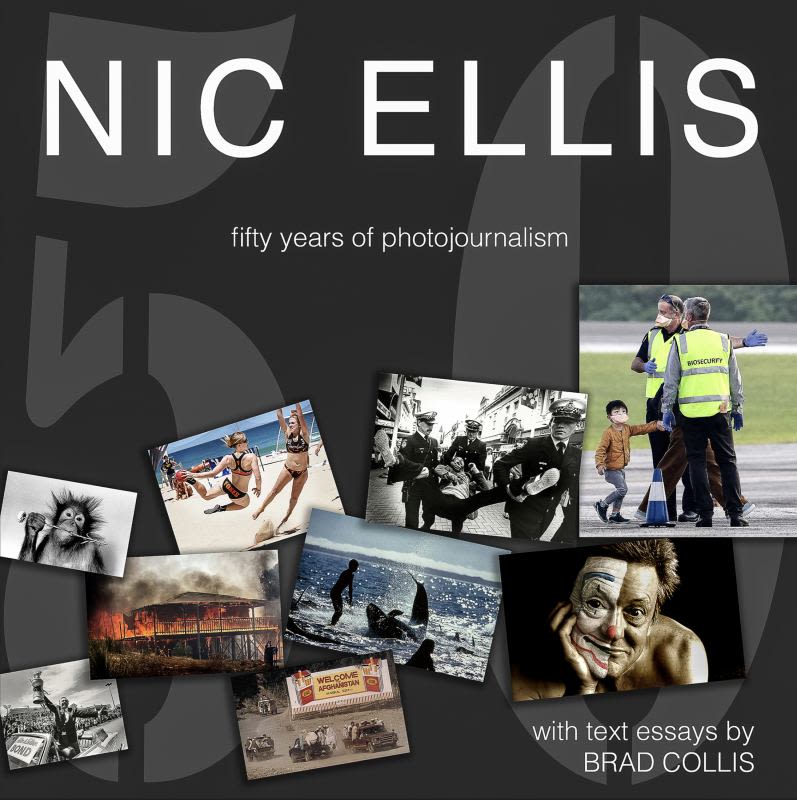Elephant polo
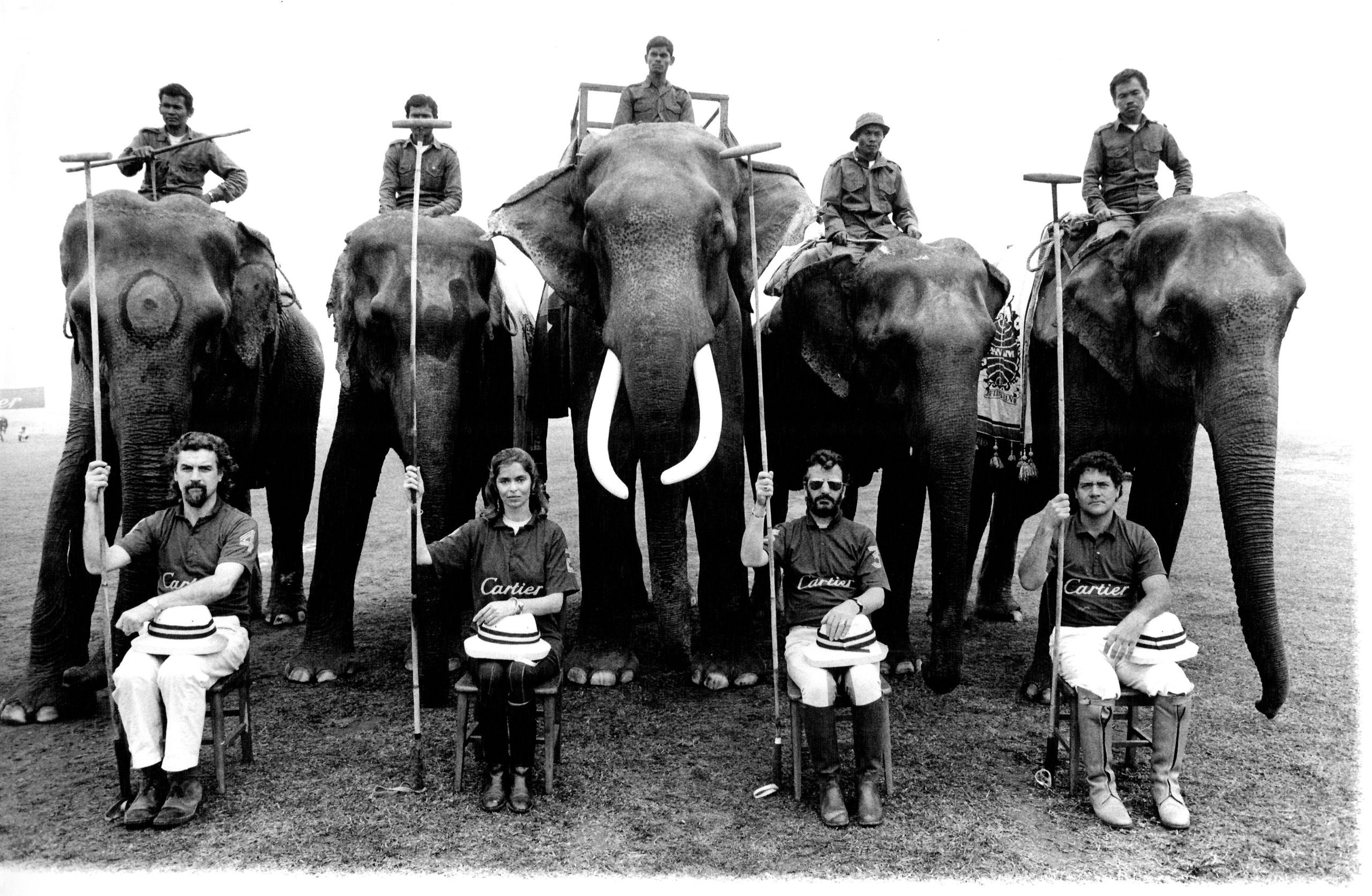
Photojournalism is one of the most dynamic mediums with which to chronicle the world around us – its ills, its eccentricities and its evolving sensibilities. The lens of the master photographer exposes us to people, places and experiences beyond our daily lives. A photograph constructed with this intent provokes us to think, act and, sometimes, just laugh.
Anticipation hangs heavy. So does the winter morning mist. We are in southern Nepal, the Royal Chitwan National Park to be precise. It is December 1985.
Though just shadowy forms, there are tents and, as the mist thins, a playing field. In one of the tents, a team of British Gurkhas adjusts polished field boots and solar topees, readying for a titanic contest.
In an adjoining tent, the military qualities of the opposition look questionable. The hirsute leader stubs out a cigarette and pulls himself from a chair. "C'mon team," he encourages in an inimitable Liverpudlian drawl.
His face largely obscured by the rakish angle of his topee, Ringo Starr, former Beatle and '60s icon, stands straight and marches forth to battle.
The two teams mount and take up position, shadowy leviathans in the mist. A bell is rung, its sound knocking dully in the heavy atmosphere. The contest begins ...
This is polo on elephants. For the next 10 minutes, the Earth reverberates from the pounding of 30 tonnes of elephant flesh as the two teams trundle around the field in pursuit of a standard four-inch polo ball.
A referee with a flag and whistle keeps an eye on play from atop a huge bull tusker. There are 15 minutes of cooling off for the elephants, a flurry of tactical chatter, then the teams and the elephants, change ends, for a second 10-minute chukka.
Brigadier Miles Hunt-Davis's Gurkhas manage two goals. Ringo Starr's team, sponsored by Paris jeweller Cartier, and comprising Ringo, his actress wife Barbara Bach and comedians/singers Billy Connolly and Max Boyce, manage none.
The scores, the first for the 1985 World Elephant Polo Championships, are chalked on a board.
Team Cartier

A chukka in progress
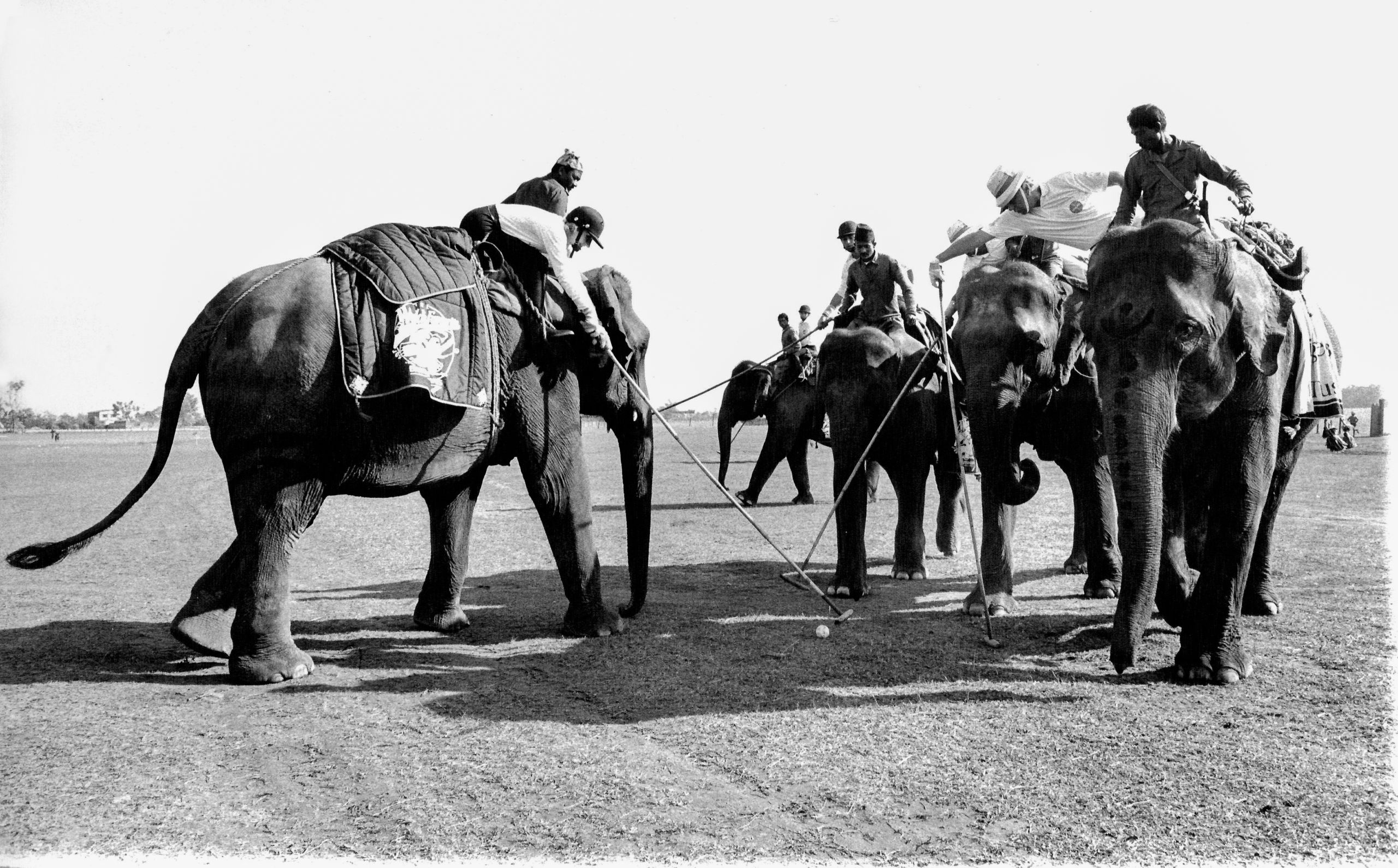
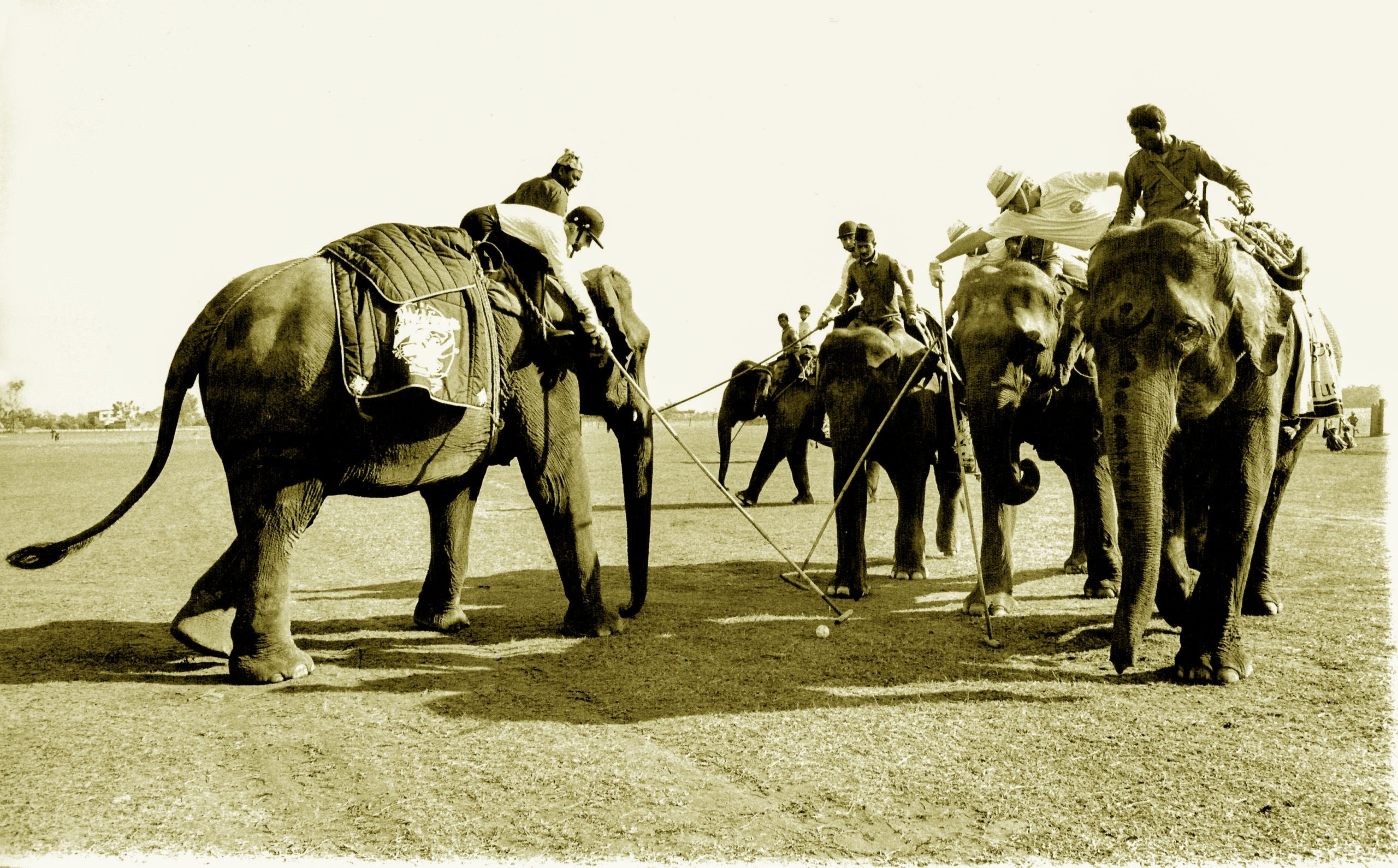
The crowd
All eyes are on the contest
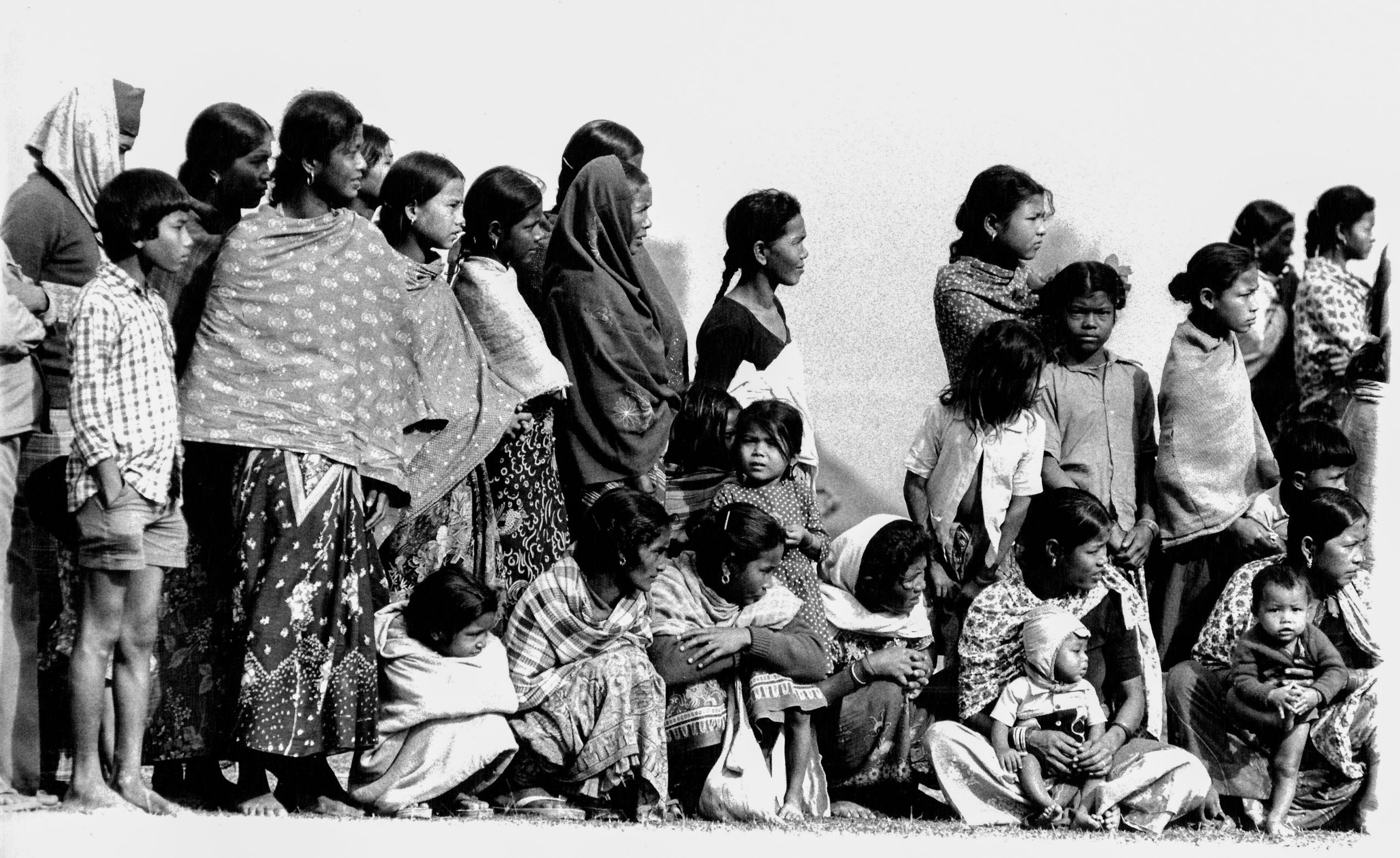

On the sidelines Jim Edwards, the acknowledged father of ecotourism, stands square-shouldered and stoutly British: "Cartier were pathetic," he shouts, but is delighted nonetheless by the spectacle. Jim Edwards is the boss of Tiger Tops, a luxury jungle lodge deep in the Royal Chitwan National Park. He created the Elephant Polo Championships in 1982 with horse polo scion, James Manclark, to raise awareness of the Trust for Nature Conservation that Edwards founded in 1980. (Jim Edwards died in Nepal in 2009 aged 75).
Elephant polo is played in the image of pony polo with just a few concessions to the size of the mounts. The field is smaller (about the size of a soccer pitch) and etiquette prohibits knocking opponents from their mounts. (It's a long way to fall from the back of an elephant.) Players are roped to a cushion on the elephant's back and ride behind a mahout, who guides the beast around the field. This frees the player to concentrate on wielding the long bamboo polo stick with enough skill or luck to strike the ball as it rolls between shuffling elephants' feet.
Nic Ellis, who swapped cameras for a polo stick to make a guest appearance for a couple of chukkas likened it to playing golf with a fishing rod, while riding from the roof of a moving Land Rover.
Halftime and a chance to clear the pitch of 'obstacles'
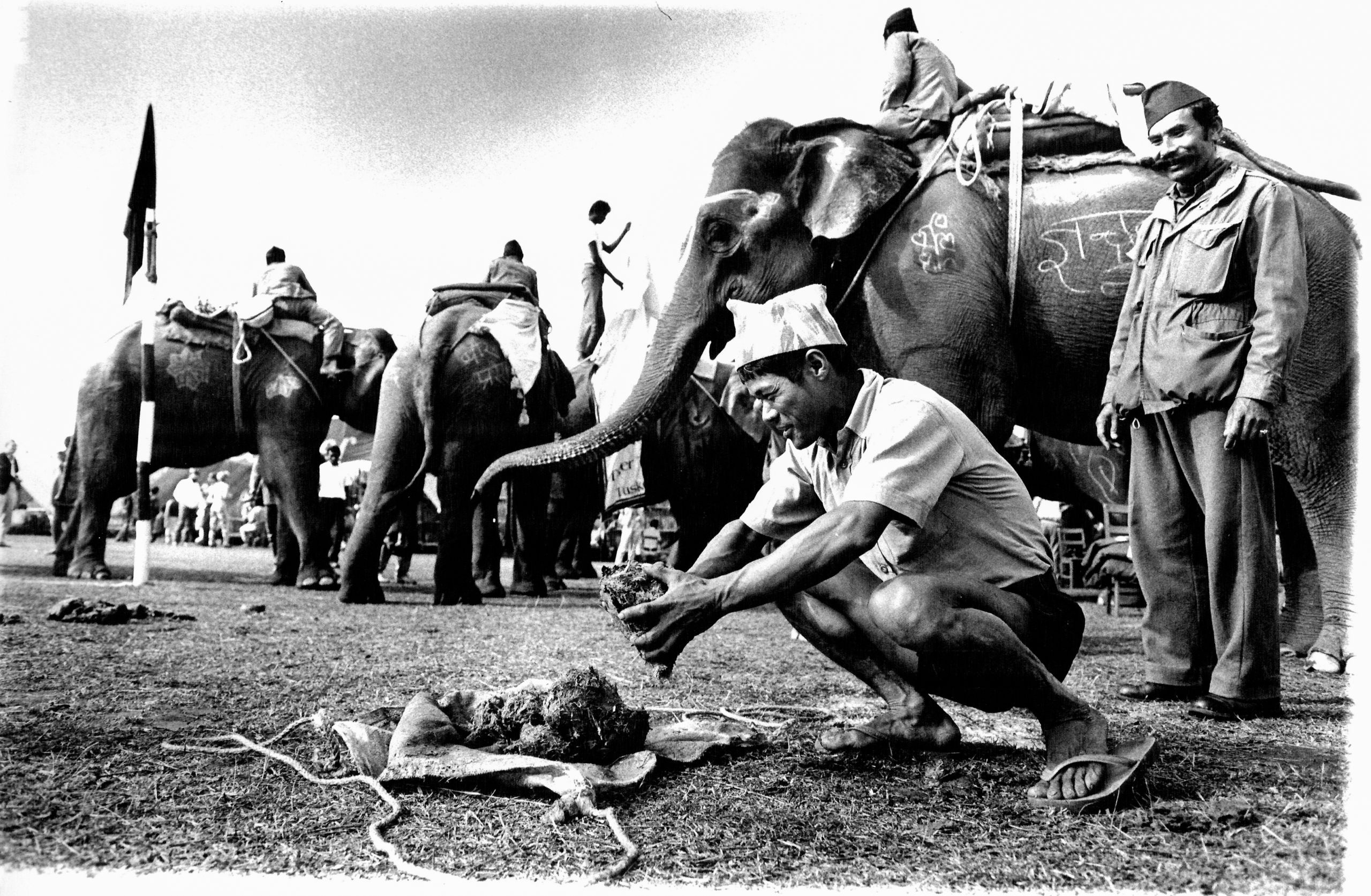

The championship
ran for three days
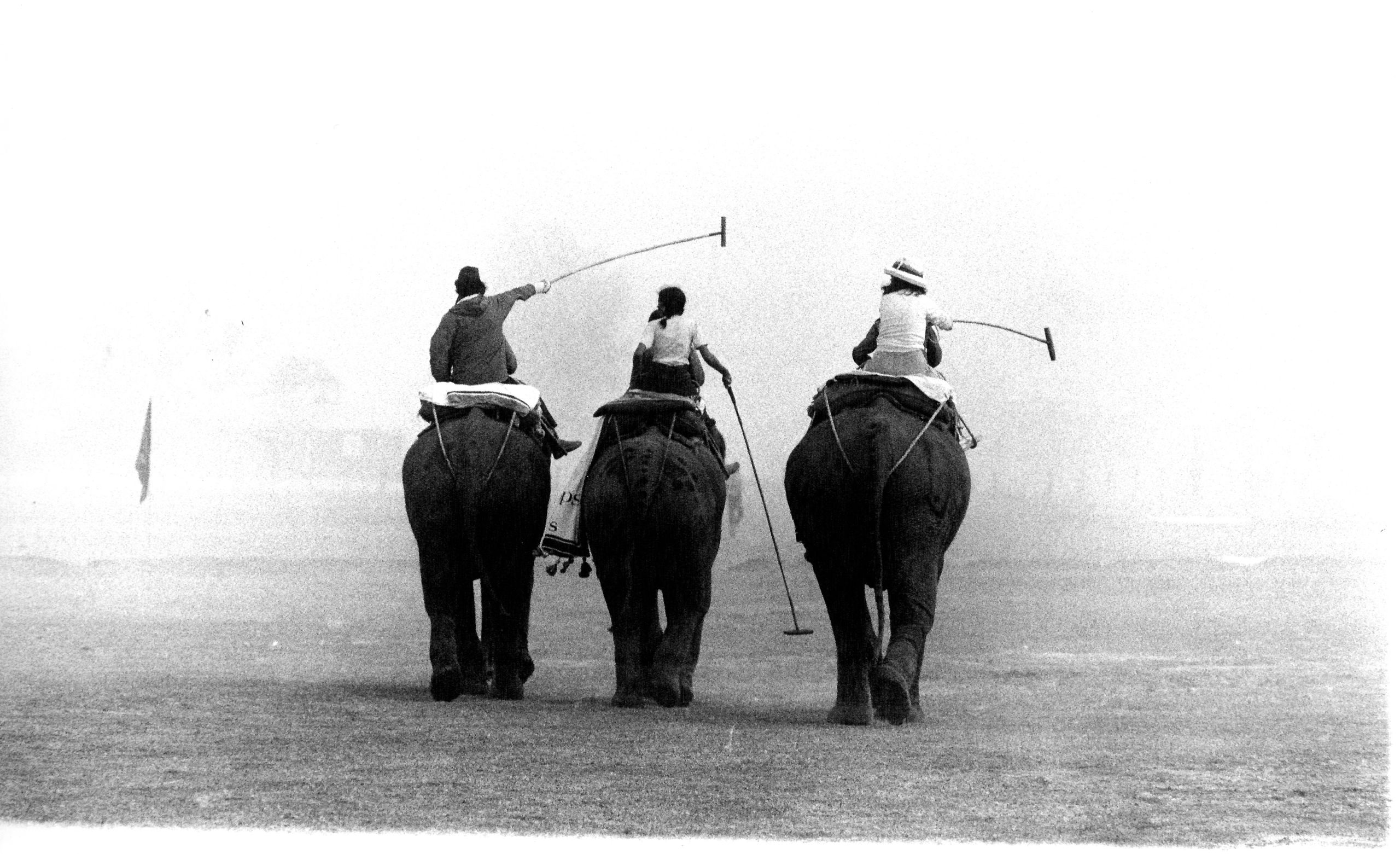
This championship ran for three days, and it was not until the third misty morning that the Cartier team achieved some semblance of glory. They pulled a score from the hat against Jim Edwards's own team, the Tiger Tops Tuskers. At two-nil down in the second chukka Cartier mounted a desperate attack on the home side's goals. While Billy Connolly offered vocal encouragement from his position back in defense, Ringo Starr directed the play up front: "Whack it, Barb," he cried as the ball rolled to the foot of Barbara Bach's elephant.
But Barbara was disoriented: "Where is it ... what's going on?"
The captain was courageous. He charged into the fray and emerged tap-tap-tapping the ball ahead of his lumbering mount. Max Boyce was on the wing. Ringo passed like a veteran. Max took a lusty, lucky, swipe and the ball whistled through the uprights to rapturous applause.
It was not enough to win the match, but it allowed the team to dismount and queue for their ritual Bloody Marys with a sense of achievement. Olympic they might not be, but their names were, like the elephants, vehicles for a cause – to raise awareness of wildlife conservation and wilderness regions under threat of irretrievable destruction.
Captain Courageous - Ringo Starr
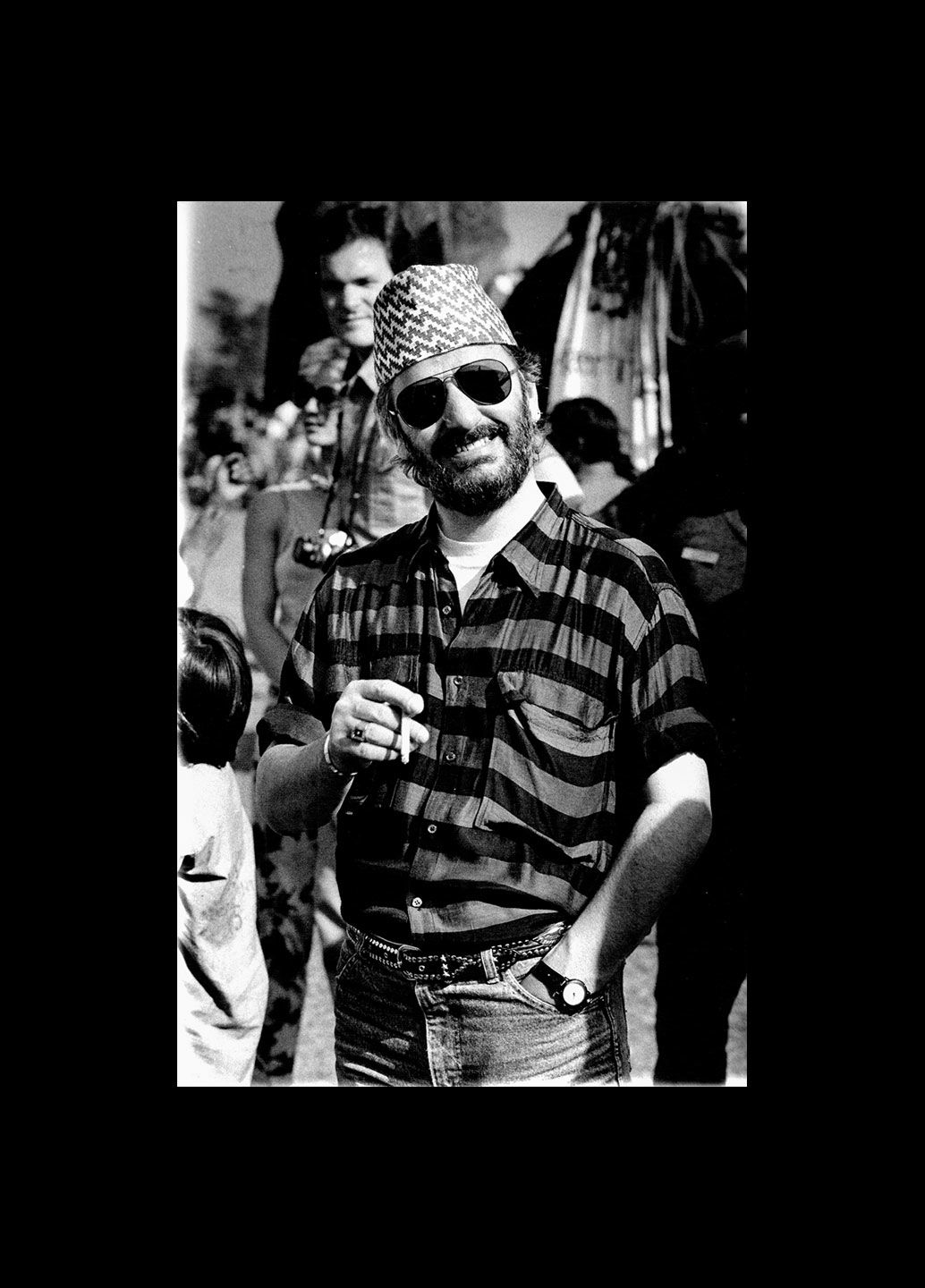
Elephant polo continues to be played in India, Sri Lanka, Thailand and Nepal, where it is registered as an Olympic sport.
Perth photographer Nic Ellis celebrates fifty years as an international photojournalist with the beautifully crafted book aptly titled ‘Fifty years of photojournalism’ featuring his internationally acclaimed photography and accompanying essays by Coretext founder Brad Collis
This is an extract from the book by Nic Ellis and Brad Collis. The book is available from Beaufort Street Books.
Fifty years of photojournalism by Nic Ellis, with text essays by Brad Collis
Fifty years of photojournalism by Nic Ellis, with text essays by Brad Collis


